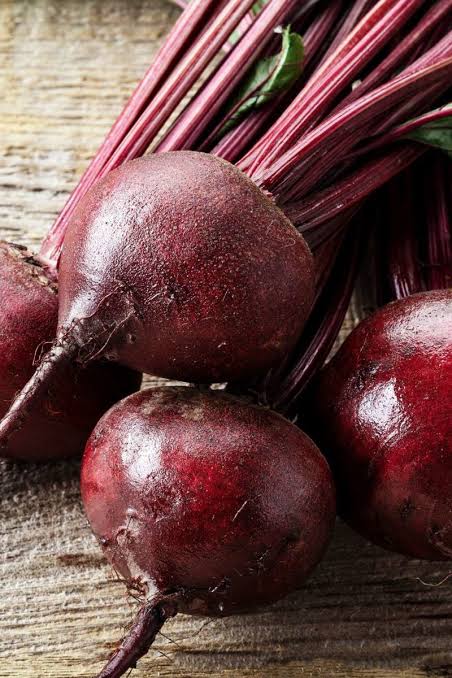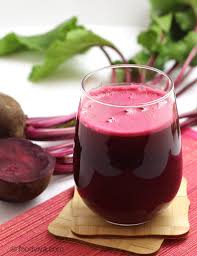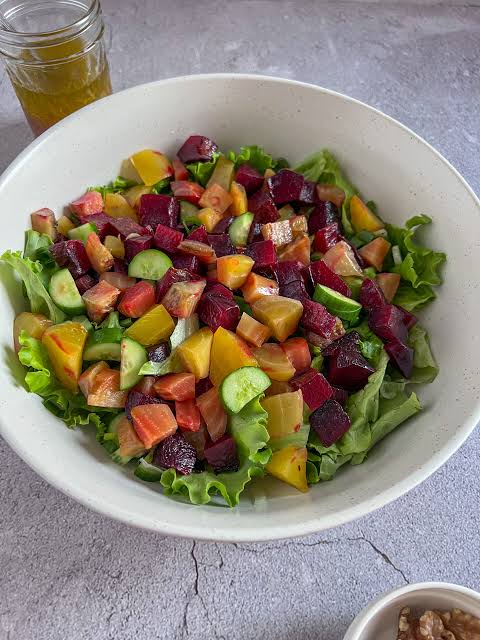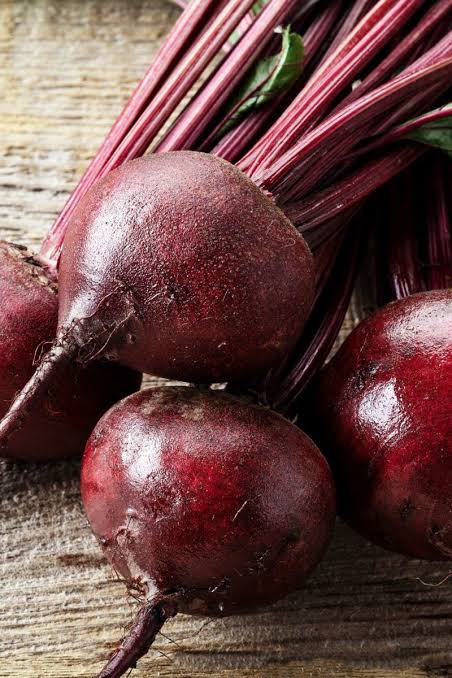Health Desk
Sandeep Dhand Ludhiana
Journalist and Research Analysist
Beetroot, often simply referred to as beets, is a humble root vegetable that has been cultivated for centuries. While it was initially valued for its leaves, it is now the vibrant, ruby-red bulbous root that garners most of the attention. Known for its distinct earthy flavor and numerous health benefits, beetroot has carved out a unique place in the world of nutrition. This vibrant vegetable is packed with essential nutrients and is widely recognized for its potential to boost health, improve athletic performance, and prevent a range of chronic diseases.

Nutritional Profile of Beetroot
Beetroot is a nutritional powerhouse, low in calories but packed with a host of important vitamins, minerals, and bioactive compounds that make it beneficial for overall health. A 100-gram serving of beetroot contains:
Calories: 43
Protein: 1.6 grams
Carbohydrates: 9.6 grams
Fiber: 2.8 grams
Fat: 0.2 grams
Beyond its macronutrient profile, beetroot is particularly rich in micronutrients such as folate (vitamin B9), vitamin C, potassium, iron, magnesium, and manganese. It is also a good source of nitrates, which play a key role in many of its health benefits.

Key Nutrients in Beetroot:
- Folate: Folate is crucial for DNA synthesis, cell growth, and function. It is particularly important for pregnant women as it helps prevent neural tube defects in developing fetuses.
- Vitamin C: An antioxidant that supports immune function, skin health, and wound healing.
- Potassium: Helps maintain fluid balance, regulate blood pressure, and support proper muscle and nerve function.
- Iron: Essential for transporting oxygen in the blood and preventing anemia.
- Fiber: Supports digestive health, aids in weight management, and helps reduce the risk of heart disease.
Health Benefits of Beetroot
- Improved Cardiovascular Health
Beetroot’s most well-known health benefit is its ability to support heart health. This is largely due to the nitrates found in the vegetable. Once consumed, these nitrates are converted into nitric oxide in the body, which helps to relax and dilate blood vessels, leading to improved blood flow and lower blood pressure. Several studies have shown that consuming beetroot juice or whole beets can lead to a significant reduction in blood pressure levels, particularly in people with hypertension.
Improved blood flow and reduced blood pressure also mean a lower risk of heart attack, stroke, and other cardiovascular diseases. Furthermore, beetroot is rich in antioxidants, particularly betalains, which give the vegetable its deep red color. These antioxidants help to reduce oxidative stress and inflammation, both of which are linked to heart disease.
- Boosting Athletic Performance
Athletes have increasingly turned to beetroot juice as a natural performance enhancer. The nitrates in beetroot improve oxygen use during physical activity, meaning muscles can work more efficiently. This leads to enhanced endurance and stamina, particularly in endurance sports such as running, cycling, and swimming.
Studies have found that beetroot juice can increase exercise performance by improving oxygen delivery to the muscles, allowing athletes to exercise for longer periods before feeling fatigued. It’s no surprise that beetroot juice has become a popular pre-workout supplement in the fitness world.
- Anti-Inflammatory Properties
Beetroot contains potent anti-inflammatory compounds, including betalains, which help reduce inflammation in the body. Chronic inflammation is a contributing factor to many serious health conditions, including heart disease, cancer, and autoimmune disorders. Regular consumption of beetroot may help mitigate these risks by lowering inflammatory markers in the body.
Additionally, the fiber content in beetroot promotes gut health by supporting the growth of beneficial bacteria in the digestive system. A healthy gut is essential for reducing inflammation throughout the body.
- Supports Brain Health
As we age, cognitive decline becomes a concern for many people. However, the nitrates in beetroot can improve blood flow to the brain, particularly in areas associated with cognitive function. This improved circulation helps to enhance mental clarity, focus, and overall brain function.
Some research suggests that beetroot consumption may help slow down the progression of dementia and other neurodegenerative diseases. The nitrates in beetroot help increase oxygen delivery to the brain, promoting better memory and cognitive performance in both older adults and younger individuals.

- Aids in Detoxification
Beetroot is an excellent detoxifier due to its high concentration of betalains, which support the liver in flushing out toxins. The liver is one of the body’s most important organs for detoxification, and keeping it healthy is vital for overall well-being. Beetroot helps stimulate the production of enzymes that promote detoxification and the removal of harmful substances from the body.
In traditional medicine, beetroot has long been used to cleanse the blood and liver. Its natural compounds help break down toxins and support the body’s natural detoxification pathways, leading to improved overall health.
- Weight Management
For those looking to maintain a healthy weight, beetroot is a fantastic addition to the diet. It is low in calories and high in fiber, which helps to promote a feeling of fullness and reduces overall calorie intake. The fiber content also supports healthy digestion, which can be beneficial for those trying to lose or maintain weight.
Furthermore, the natural sweetness of beetroot makes it a great alternative to sugary snacks. Its sweet flavor can satisfy sugar cravings without contributing to weight gain or blood sugar spikes.
Ways to Include Beetroot in Your Diet
Beetroot is a versatile vegetable that can be enjoyed in a variety of ways. Some popular methods of consumption include:
Juicing: Beetroot juice is a refreshing and nutrient-dense drink that can be consumed on its own or mixed with other fruits and vegetables like apples, carrots, or ginger.
Roasting: Roasted beets develop a sweet, caramelized flavor that pairs well with salads, grains, and proteins.

Boiling/Steaming: Boiled or steamed beets can be sliced and added to salads, soups, or grain bowls.
Smoothies: Blend raw or cooked beets into smoothies for a nutrient boost.
Pickling: Pickled beets are a tangy and delicious way to enjoy this vegetable, especially in salads or as a side dish.
Conclusion
Beetroot is not just a beautiful and delicious vegetable but also a nutritional powerhouse. From boosting cardiovascular health to enhancing athletic performance and supporting brain function, the benefits of beetroot are extensive. Its rich nutrient content and versatility make it a great addition to any diet. Whether you’re looking to improve your overall health, manage your weight, or enhance your athletic performance, beetroot can play a key role in helping you achieve your goals. So, next time you’re at the grocery store, consider adding this vibrant vegetable to your cart and reap the many benefits it has to offer.
